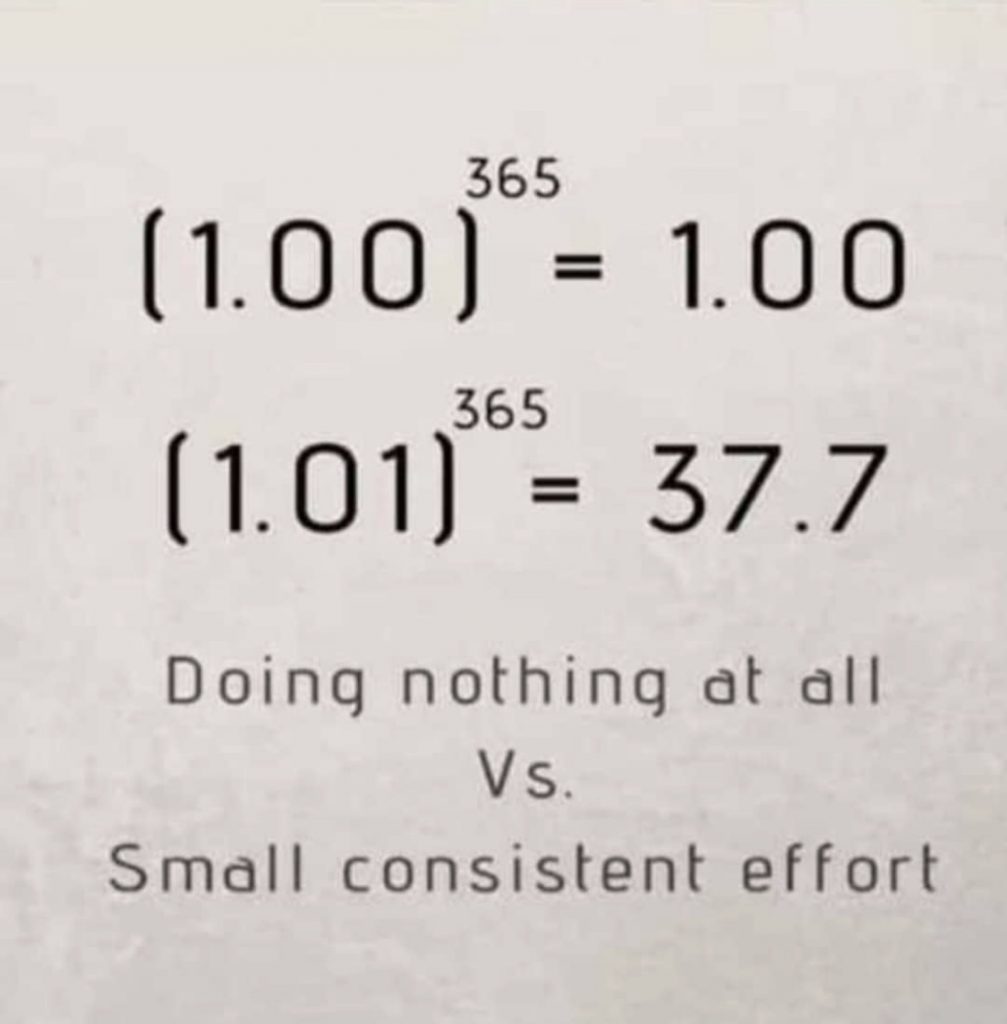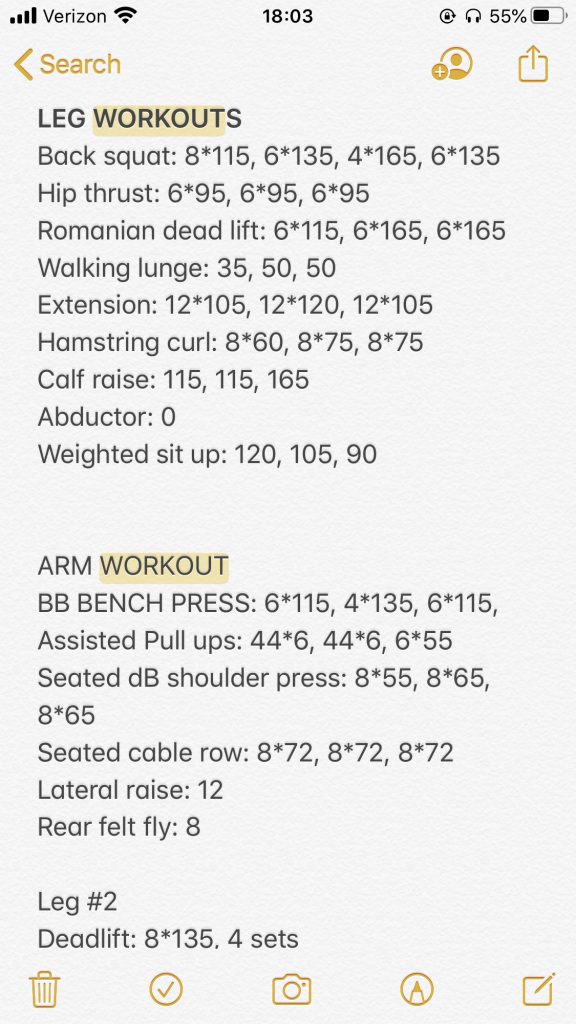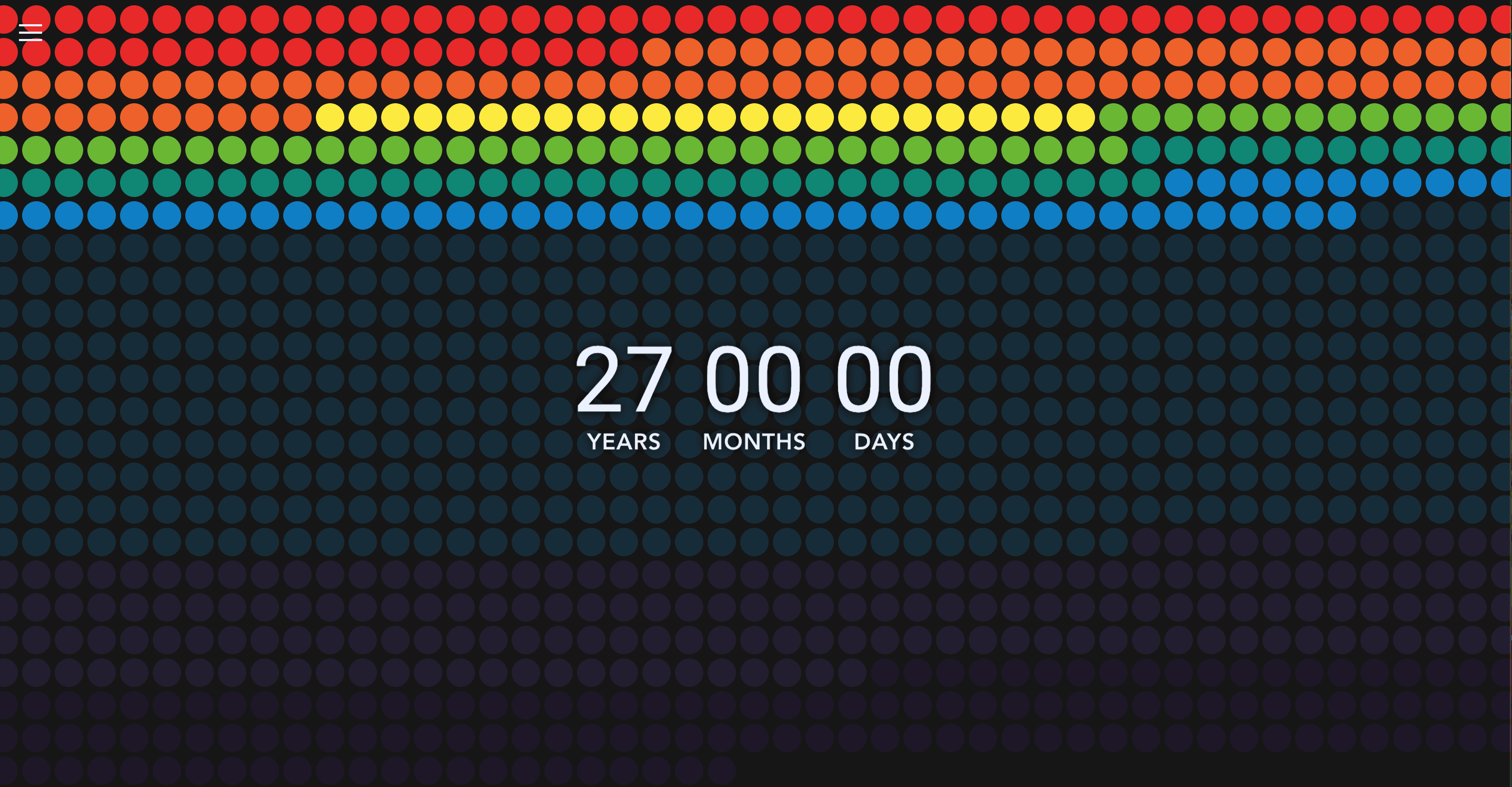Today’s my 27th birthday!
A few days ago, I found a note I wrote when I turned 22. Much like seeing high school photos of myself, it was cringy to read. Oh how naive I was then.
But I also found it oddly cathartic to see how my mind has changed over time.
So when I wrote this piece, I admit it’s mostly for a “future me.”
But after going over it a few more times, I thought it was worth sharing with everyone. So whether you’re 26 or 62, I hope you enjoy these 27 life lessons I’ve learned in 27 years of being alive.
1. Fall in love with the messy middle.
If you read most blogs and business books, you might think the secret to success is always starting new things. But I’ve learned that starting is the easy work. The hard part — the part where all the growth happens — is in the messy middle where you’re refining your craft, making a bunch of a mistakes, and getting better.
For example, starting my agency took 2 seconds. My business partner and I looked at each other after signing a client and said, “Let’s do this.”
But one client doesn’t take anybody where they want to go. The real work, the real growth, is what comes after you decide to start. And yet, almost nobody talks about this! Most people and most content focuses on starting. Or chasing trends. Or following fads.
But the messy middle is where your focus should go because that’s where all the growth happens.
2. Control your definition of success.
If I measure my success by the way society wants me to measure it, I’m shockingly far behind. Let me list some of the ways:
- I’m not married (and my girlfriend and I plan to keep it that way).
- I don’t own a home.
- I don’t have a W-2 job.
- I drive an old, bent-rimmed Hyundai Elantra GT.
So on paper, I kind of suck.
But I also never have to request time off. I spend most days doing exactly what I want to do and make more than I ever made in any of my jobs.
The funny thing is if I kept chasing the things society said I needed to be successful, I’m not sure any of the good things about my life today would be true.
I’d probably still be working a soul-sucking job at an investment bank (and seriously considering jamming a pen through my computer screen to toss it out the 8th floor window).
But I’ve learned not to not let society define success for me.
I define it according to me. And that’s the only definition I care about.
3. Create more than you consume.
Our culture is built on consumption. We’re pushed to keep scrolling, keep watching, keep eating. But I’ve learned that consumption almost always leaves you feeling more empty than full.
For example, last year I found myself watching my 10th video on how to design the perfect webinar funnel and wondering what would happen if I tried it.
And then I thought, “What the heck am I doing just watching this? Why not just go do it?”
A week later, I had my first webinar funnel. I also learned 5x more about what it took to getting leads and sales than I did from any of those videos.
The point is creating gave me experience. Consumption kept me on the sidelines wondering, “What if?” And what if is a horrible slogan for your life.
4. You can change core parts of your identity.
Last year, I had a huge wake-up call about my body. I saw some super unflattering photos of myself at the beach and realized I was rail thin. Have a look…
It wasn’t pretty…
So I resolved to change it.
I upped my eating to almost 4,000 calories a day and started working out hard.
Gaining muscle is one of the hardest things I’ve ever done. But it’s also proven to me that I can change core parts of my identity and how to do so. You don’t do it by showing up to one workout or eating one big meal. You do it by showing up every day, having extreme discipline and stacking wins day by day. The same is true for any area of life.
5. Work 0 hours in a week.
When I got my first job as a copywriter, I worked around the clock. Not only would I wake up at 5 am to get a head start on the day, but I’d often worked till midnight making edits, writing and rewriting projects.
Back then, if you asked me how I was doing, I always had the same answer, “Busy.” So. Freaking. Busy.
All that work did lead to some big payoffs. I wrote as much in a year as it would take most people 2 or 3.
But the truth is, I burned myself out. After 18 months, I had nothing left in the tank. My work got sloppy. I couldn’t sleep. I was drinking a pot of coffee (or two) every day just to stay afloat.
And one day I snapped, and I quit out of the blue.
I simply couldn’t take it anymore. If I’d given myself space and rest, I would have been able to look at tasks more clearly and stay sane.
Over the past year, I’ve worked on this a lot. My girlfriend and I even make it a regular practice of going totally off the grid when we travel.
We don’t check email, take sales calls or write anything. At first I was scared about what would happen. But the funny thing is, our business doesn’t shut down. In fact, it often continues to grow.
More, we come back refreshed and more excited than ever to work. Work, like life, needs seasons. Plant seeds, let them grow, gather your crops and enjoy the fruits of your labor when the time is right.
6. Enjoy being the least skilled person in the room
My first copywriting mentor was 10x better than me. He’d been writing for 10 years, sold tens of millions of dollars of product, and was in the top 2% of copywriters in the world.
Me? Total newbie.
The feedback he gave me was brutal.
But working with someone who was 10 times better than me cut my learning curve by ten-fold.
Some people spend 5 years to become a senior writer. I did it in 18 months.
In my agency, my cofounder is at least a 10x better writer than me, and I love it.
I actively seek to be the worst in most rooms I’m in because I know that’s what it takes to improve.
7. Stop saying entrepreneurship is the only way.
There’s a common narrative today that says the only way to avoid a soul-sucking career and succeed is to become an entrepreneur. But that’s a lie.
The truth is there are a lot of great companies that pay people well and allow them to innovate. Don’t let the gurus trick you. Starting a business is hard work.
You have to master a lot of skills at once. Things like negotiating, hiring, marketing yourself, time management, expense management and — on top of all that — actually doing the work. It’s hard.
And if I’d gotten my start in copywriting by building an agency from scratch, I definitely would have failed. I needed to master the craft and layer on the other skills one at a time. I needed a partner.
I love entrepreneurship and encourage people to start their own businesses all the time (just on the side to start). But entrepreneurship is not inherently better than every job, and we need to stop saying it is.
8. The less I do, the better I get.
In my early 20s, I thought mastery meant knowing how to do everything a little bit.
For example, I thought by learning how to create any kind of campaign with Klaviyo, build sales pages, and create webinar decks for my copy, it would make me a better, more full-stacked copywriter. But I’ve learned that each one of those things is a skill of its own.
And while I’m glad I know how to do them, it’s far more beneficial for me to focus on the core tenants of my work (copy and email strategy) than stretching myself to do them all.
One leads to scattered results. The other leads to mastery.
9. Test and pivot (even if it’s embarrassing).
I used to think that trying something new and pivoting was embarrassing. For example, last year I decided to launch a podcast and told everyone I know about it.
A few episodes in, I realized I hated it and wanted to change the entire structure. The old me would have seen that as an enormous public failure. But the new me is learning to let myself try things and pivot when necessary. The real failure is in not being willing to adapt.
10. Stop ONLY reading self-help and non-fiction books.
I have an audible account full of books telling me how to fix a long list of things that are broken about me. But I’ve learned there’s no single book that will fix all your problems. Even more fundamentally, I’ve learned it’s not “wasting time” to read fiction. Somewhere along the way I told myself the only books that were worth my time were non-fiction and that’s a lie.
Plus, everything doesn’t have to clearly state the results you get by reading it. In fact, some of the biggest lessons I’ve learned in the past year have come fiction books I never thought I’d read.
11. Work so hard you almost collapse.
This seems like a direct contradiction of lesson 5.
But some of my biggest breakthroughs have come by working so hard that I thought I would collapse.
For example, in November of last year, I made the decision to launch a course. I decided to pre-sell it and build it only after people proved they were interested. Well, people were. I got 25 pre-orders within 24-hours. I was thrilled. Then I realized, ”Oh dang…I have to actually go build this thing.” Compounding the challenge was the fact that I promised to deliver the course the same week we had several big due dates for client campaigns. To ship the course, I spent 4-straight days recording and editing videos. At one point, it seemed impossible. But when I was done, I knew I had more in the tank than I ever thought possible.
12. Small consistent effort always wins.

In my early 20s, I used to set big, sweeping New Year’s Resolutions. On January 1, I’d sit down and say, “I want to get 10,000 subscribers this year!” But behind the grand phrase was a total lack of planning on how to get there. Now, I know it’s not goals but small daily habits that actually get you there. For example, in 2019, I resolved to write at least 2 post per month on Kings of Conversions and other sites. In the beginning, I didn’t see much difference. But over 6 months, I had thousands of readers.
The key is taking small consistent action — not just setting big sweeping goals.
12. Simple systems beat all the hacks.
I’ve tried dozens of productivity apps and the only one that I’ve ever stuck to is good ol’ pen and paper.
I guess what I’m saying is the biggest secret about productivity is there are no “secrets.” Just get to work. For me, the best way to get stuff done is write down a simple list at the start of every day for what needs to get done, cross off what I finish and roll what doesn’t get done into the next day. Rinse, wash, repeat. Any time I get more complicated than this, things get messy.
14. Say “YES!” especially when you’re too busy to do it.
Some of the best things I’ve ever experienced have come by saying yes when I thought I was too busy to break away from the grind and go. For example, in July of last year, I won a free trip to NYC to see the Closing Bell at the NASDAQ.
I almost didn’t go because I found out about this trip on a Wednesday. The event was Friday and I was really busy.
But I said yes and went anyway.
And it turned out to be one of the coolest experiences of my life.
I’ve learned that you’ll regret sitting in the office more than you will going.
15. Remove toxic people.
I’ve had to (painfully) cut even some of the closest people out of my life because they were robbing me of energy and happiness. But even if the cut is deep, you don’t owe anybody anything. Especially if the people take more from you than they give. It’s as simple as that.
16. Trust your gut.
As a people pleaser, I often find myself pressured to do what I think will make other people happy. Yet, this always leads to decisions blowing up in my face. For example, I was recently on a call with a prospect. He was pushing me to hit extremely fast deadlines and beat the quote another vendor was giving him.
The people pleaser in me was screaming, “DO WHAT HE SAYS ROB!”
But my gut was saying, “Avoid this guy like the plague.”
We turned him down and decided not to work with him. And I’m really glad we did because he showed his true colors the next day leaving several aggressive voicemails.
The point is I’ve been working harder on trusting my gut. If I have a bad feeling or a lingering suspicion or feel like I’m trying to please others, it’s rarely wrong. I’m getting more in touch with this. But trusting my gut has almost never lead me astray.
17. Apply Hanlon’s Razor to challenging situations and people.
This mental model changed my life. It states, “Never attribute to malice that which can be adequately explained by stupidity.” And this simple rule has helped me confront many challenging situations and people.
18. Tell people who matter to you how important they are.
A simple text or email can go a long way. I’m still working on this. But it’s important and I’m getting better.
19. Document your progress.
Even if you never intend to share it with others, it’s so fun to look back on how far you’ve come. For example, I logged all 136 of my workouts in 2019.

And it’s so cool to look back on my squats and bench to see how far I’ve come. The same is true for business and life goals. Document so you can reflect.
20.When you make a true, bonafide decision, all excuses vanish.
When I find myself pausing and overthinking things…
“Is this the right time?”
“But I don’t have the money.”
“What will people think?”
“What if it doesn’t work out?”
I know that I haven’t committed fully to taking action. I’ve learned all those doubts disappear into thin air when I make a real decision and go all-in.
TRUE DECISIONS are how we stop those cycles of getting motivated and constantly starting and stopping. If you want real progress, you must master the mental game of learning how to decide.
21. Try to minimize your regrets.
Whenever I face a big choices in my life, I’ve developed a simple test to know what I should do.
I ask, “But will I regret not doing it?”
And that simple phrase has helped me over and over again. I used it when starting my podcast, entering a business competition, traveling to new cities and more.
22. Spend less time agonizing over your past and more time creating your future.
Spending time agonizing over the past has never made me feel better. You know what has lead to big changes in my mood and happiness? Creating a new reality. Today. Right now.
23. When you feel bad, ask why (7 times).
Sometimes the true source of what’s bothering you isn’t clear. That’s why I ask myself why I’m upset 7 times to trace the true source of my frustration. Then, I can take real steps to fix the real problem
24. Save money (especially when you don’t think you can).
If I could travel back in time and thank my younger self for anything, it would be the fact that I started saving young. I always made a practice of setting aside a little from every paycheck, every bonus, and every dime I earned on the side. Even when I was flipping tiny burgers at Krystals as an 18-year-old kid, I put money away from every paycheck. Even if it was $5 out of $51.12 check, I saved (yes, that actually happened).
Now that I’m 27, I can see the benefits of compound interest starting to take hold. But more important than the money is that it’s allowed me make seemingly risky decisions a lot easier. For example, when I made the decision to leave my high-paying job and start a business, I wasn’t worried if I’d be able to make rent. I had years’ worth of expenses saved up. If you’re younger than 27 and reading this, I can’t stress enough how important it is to start saving now. If you’re older than that, the same is true. After all, the best time to plant a tree was 20 years ago, the second best time is today.
25. The obstacle, the problem you’re facing, the setback you just experienced, whatever challenges you’re facing right now IS exactly what you need.
I learned this from best-selling author, Ryan Holiday and love the advice so much. Because at its core, it’s about learning that I can NEVER control what happens to me.
But I can ALWAYS control of how I respond.
It taught me to look at problems as potential benefits instead of reasons to give up.
26. Direction is more important than your destination.
I’ve learned the goals are way less important than the direction I’m moving in. As long as my decisions are nudging me closer to where I ultimately want to be, I’m okay with things changing along the way. For example, I used to want to work on Wall Street. Now that seems nuts. And I’m sure the things I want today will seem ludicrous in 10 years. But as long as I keep moving in the right direction, I’m okay with taking the longer road to get there.
27. Love yourself.
I’m an extremely flawed person. If I had to make a list of all the things that are broken or dysfunctional about me, it’d twice as long as this post. But the reality is, I’ve learned to love my flaws and embrace them as things that make me, me.
After all, if you don’t love yourself, who will?
Anyway, I know I have a lot more to learn. But these are some of the most impactful lessons I’ve taken away in 27 years.
I can’t wait to learn more in the next 27, and I’m excited to have you all on the journey with me.

